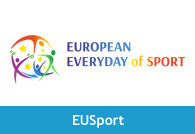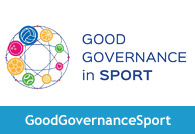NEWS

BSDA is partner in PASSPORT project

10.01.2018
The main objective of the PASSPORT (Project for Academy Sport SupPORT) project is to promote and support good governance in sport and dual careers of athletes. It addresses the aforementioned objectives by raising the awareness of dual carrier for athletes. Athletes often face challenges to combine their sporting career with education. According to international research, one-third of all participants from sports each year as they consider that sport takes up too much of their time.
PASSPORT promote and support dual careers for athletes by setting up a transnational network of partners that will develop a platform for the training of athletes in the sport management, hence contributing to their employability.
PASSPORT promote and support dual careers for athletes by setting up a transnational network of partners that will develop a platform for the training of athletes in the sport management, hence contributing to their employability.
Through the collaboration of a transnational partnership comprised of 6 partners covering 5 countries, the project will conceive and develop a training programme in Sports Management as a dual carrier program delivered by the two academic organizations integrated in the consortium of six partners and targeting 100 athletes. Thus, the partnership brings together a range of key partners jointly working for the development of new educational and training modules for athletes in the field of sport management, which will also benefit with a new on-line platform.
To ensure a real european dimension, PASSPORT has agreed a strategic partnership with three sport association, two academic institutions and one NGO trying to compare experience from East and West part of Europe. Coordinator of the project is Rijeka Sport’s Association from Croatia, and partners of the project are Bulgarian Sports Development Association (Bulgaria), Mine Vaganti NGO (Italy), FH JOANNEUM University of Applied Sciences (Austria), Športna zveza Ajdovščina (Slovenia) and Business school PAR (Croatia).
PASSPORT primary objective: to develop and implement sport management program in innovative dual career pathways, including the content of the curriculum and the test the on-line platform (facilities and supporting services).
Balancing a dual career and improving students-athletes chances of employability during the transition to the real world are two perennial problems of student-athletes. The PASSPORT project proposal contains a completely new and innovative approach to solve this problem. The first innovative feature is developing a comprehensive curriculum consisting of 6 modules custom-tailored (including both formal and non-formal learning techniques) to target busy student athletes and provide them with knowledge and skills that will boost their employability when their sporting career is finished. The second innovative feature is developing a virtual learning environment (VLE) as an online hosting platform for the 6 modules within the curriculum. The third innovative feature is the interactivity and knowledge transfer of the PASSPORT project proposal, meaning that all of the project participants will not only communicate face-to-face, but they will also be empowered to enhance their communication online both in the direction of course instructor – student athlete, course instructor – course instructor, as well as among student athletes themselves in the virtual learning classrooms. The fourth innovative feature is the partnership composition, aiming to create a transnational network which combines different profiles so as to join forces for a common objective. The fifth and final innovative feature is the replicability of the educational delivery scheme through the virtual learning environment on a larger international scale. Through these five innovative features the PASSPORT project proposal can have strong impact toward the intended target groups of student athletes in enable them to develop their dual careers and raise their awareness of the availability of alternative educational delivery models that better cater to their needs.
Project PASSPORT is co-funded by the Erasmus+ Sport Programme of the European Commission. Eligibility period: 01.01.2018.-30.06.2020.
To ensure a real european dimension, PASSPORT has agreed a strategic partnership with three sport association, two academic institutions and one NGO trying to compare experience from East and West part of Europe. Coordinator of the project is Rijeka Sport’s Association from Croatia, and partners of the project are Bulgarian Sports Development Association (Bulgaria), Mine Vaganti NGO (Italy), FH JOANNEUM University of Applied Sciences (Austria), Športna zveza Ajdovščina (Slovenia) and Business school PAR (Croatia).
PASSPORT primary objective: to develop and implement sport management program in innovative dual career pathways, including the content of the curriculum and the test the on-line platform (facilities and supporting services).
Balancing a dual career and improving students-athletes chances of employability during the transition to the real world are two perennial problems of student-athletes. The PASSPORT project proposal contains a completely new and innovative approach to solve this problem. The first innovative feature is developing a comprehensive curriculum consisting of 6 modules custom-tailored (including both formal and non-formal learning techniques) to target busy student athletes and provide them with knowledge and skills that will boost their employability when their sporting career is finished. The second innovative feature is developing a virtual learning environment (VLE) as an online hosting platform for the 6 modules within the curriculum. The third innovative feature is the interactivity and knowledge transfer of the PASSPORT project proposal, meaning that all of the project participants will not only communicate face-to-face, but they will also be empowered to enhance their communication online both in the direction of course instructor – student athlete, course instructor – course instructor, as well as among student athletes themselves in the virtual learning classrooms. The fourth innovative feature is the partnership composition, aiming to create a transnational network which combines different profiles so as to join forces for a common objective. The fifth and final innovative feature is the replicability of the educational delivery scheme through the virtual learning environment on a larger international scale. Through these five innovative features the PASSPORT project proposal can have strong impact toward the intended target groups of student athletes in enable them to develop their dual careers and raise their awareness of the availability of alternative educational delivery models that better cater to their needs.
Project PASSPORT is co-funded by the Erasmus+ Sport Programme of the European Commission. Eligibility period: 01.01.2018.-30.06.2020.

 Български
Български






























